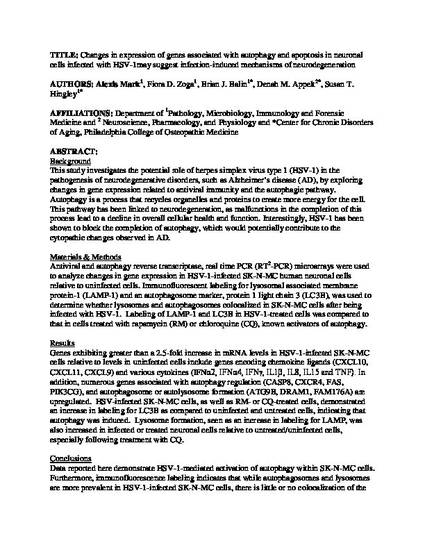
Other
Changes in Expression of Genes Associated with Autophagy and Apoptosis in Neuronal Cells Infected with HSV-1may Suggest Infection-induced Mechanisms of Neurodegeneration
Research Day
Location
Philadelphia Campus
Start Date
2-5-2012 2:00 PM
End Date
2-5-2012 4:00 PM
Disciplines
Description
Background:This study investigates the potential role of herpes simplex virus type 1 (HSV-1) in the pathogenesis of neurodegenerative disorders, such as Alzheimer’s disease (AD), by exploring changes in gene expression related to antiviral immunity and the autophagic pathway. Autophagy is a process that recycles organelles and proteins to create more energy for the cell. This pathway has been linked to neurodegeneration, as malfunctions in the completion of this process lead to a decline in overall cellular health and function. Interestingly, HSV-1 has been shown to block the completion of autophagy, which would potentially contribute to the cytopathic changes observed in AD.
Citation Information
Alexis Mark, Fiora D. Zoga, Brian J. Balin, Denah M. Appelt, et al.. "Changes in Expression of Genes Associated with Autophagy and Apoptosis in Neuronal Cells Infected with HSV-1may Suggest Infection-induced Mechanisms of Neurodegeneration" (2012) Available at: http://works.bepress.com/susan_hingley/13/
